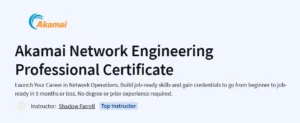What will you learn in Advanced Predictive Modelling in R Certification Training Course
Master advanced regression techniques, including regularization (Lasso, Ridge) and generalized linear models.
Implement classification algorithms such as logistic regression, decision trees, and support vector machines.
Apply ensemble methods: random forests, gradient boosting, and stacking models for improved accuracy.
Perform time series forecasting using ARIMA, exponential smoothing, and state-space models.
Explore unsupervised learning: k-means clustering, hierarchical clustering, and principal component analysis.
Validate and tune models with cross-validation, ROC/AUC analysis, and hyperparameter optimization.
Program Overview
Module 1: Course Introduction & R Setup
⏳ 2 hours
Topics: Course objectives, R environment setup, package installation (caret, forecast, randomForest).
Hands-on: Configure RStudio, install libraries, and run sample scripts.
Module 2: Advanced Regression Techniques
⏳ 3 hours
Topics: Regularization methods (Lasso, Ridge), GLMs, diagnostics.
Hands-on: Build and compare penalized regression models on real datasets.
Module 3: Classification Algorithms
⏳ 3 hours
Topics: Logistic regression, decision trees, support vector machines, model performance metrics.
Hands-on: Train classifiers, evaluate with confusion matrices, and tune parameters.
Module 4: Ensemble Methods
⏳ 3.5 hours
Topics: Bagging, random forests, gradient boosting machines (GBM), stacking ensembles.
Hands-on: Implement and ensemble models using caret and mlr frameworks.
Module 5: Time Series Forecasting
⏳ 2.5 hours
Topics: ARIMA modeling, exponential smoothing, seasonal decomposition, forecast accuracy.
Hands-on: Forecast sales data and evaluate model assumptions.
Module 6: Unsupervised Learning
⏳ 2.5 hours
Topics: k-means clustering, hierarchical clustering, PCA for dimensionality reduction.
Hands-on: Segment customers and visualize clusters using ggplot2.
Get certificate
Job Outlook
Predictive modeling experts are in demand in finance, healthcare, marketing, and tech, with salaries ranging $85K–$130K.
Skills in R and advanced analytics open roles as Data Scientist, Quantitative Analyst, and Analytics Engineer.
Proficiency in model deployment enhances opportunities in production analytics and MLOps.
Expertise in time series and ensemble methods is particularly valued for forecasting and risk modeling.
Specification: Advanced Predictive Modelling in R Certification Training
|





